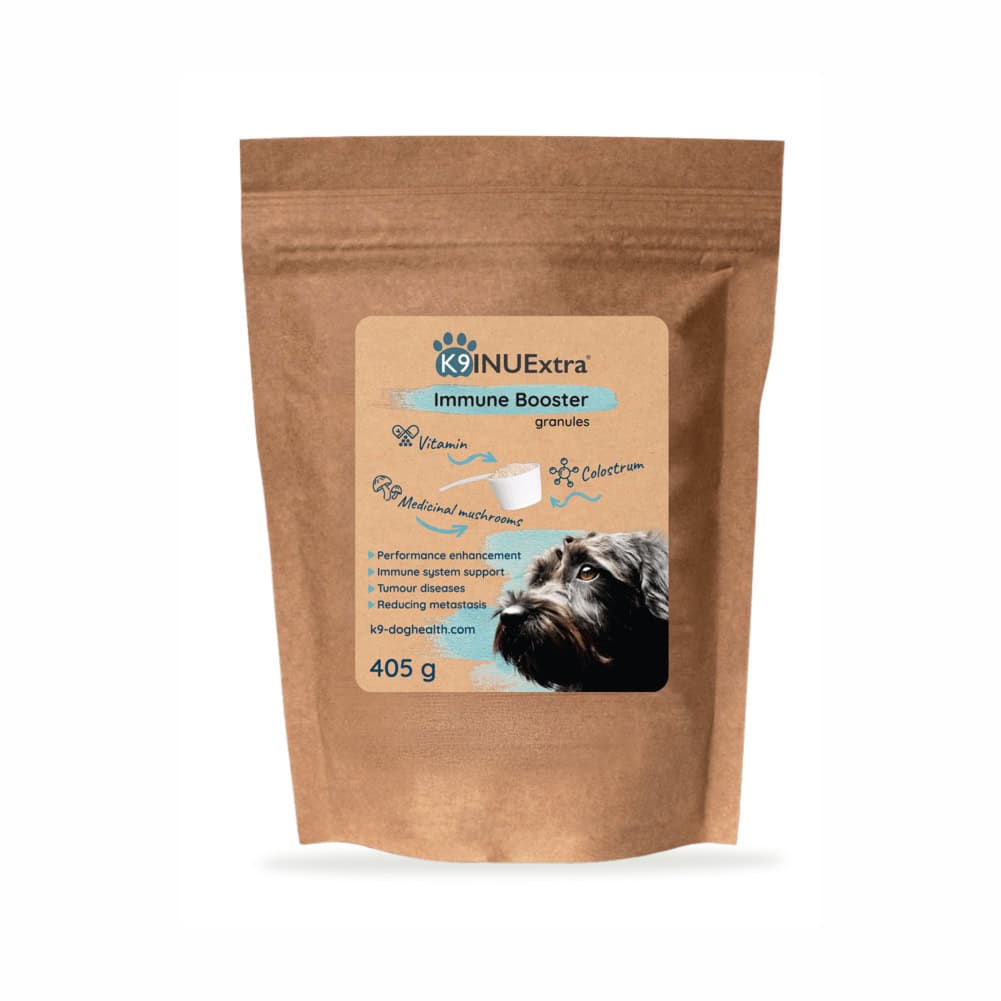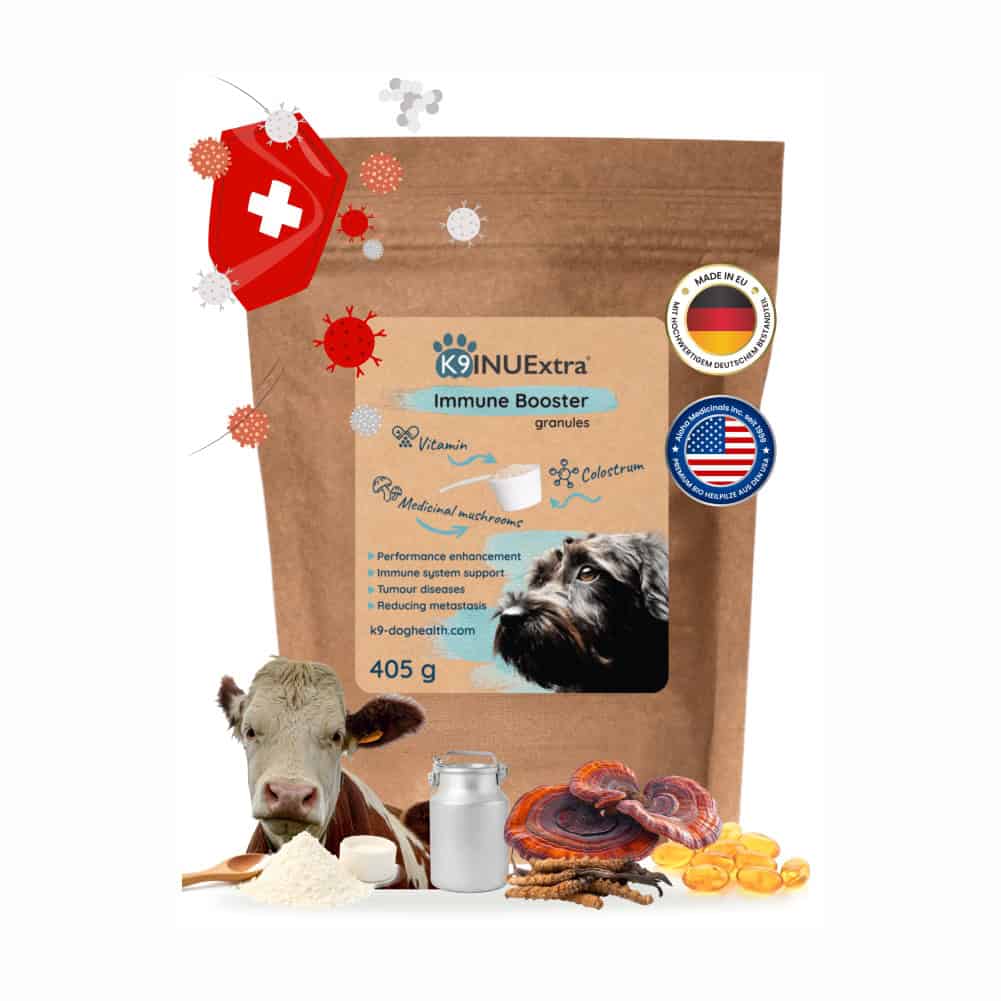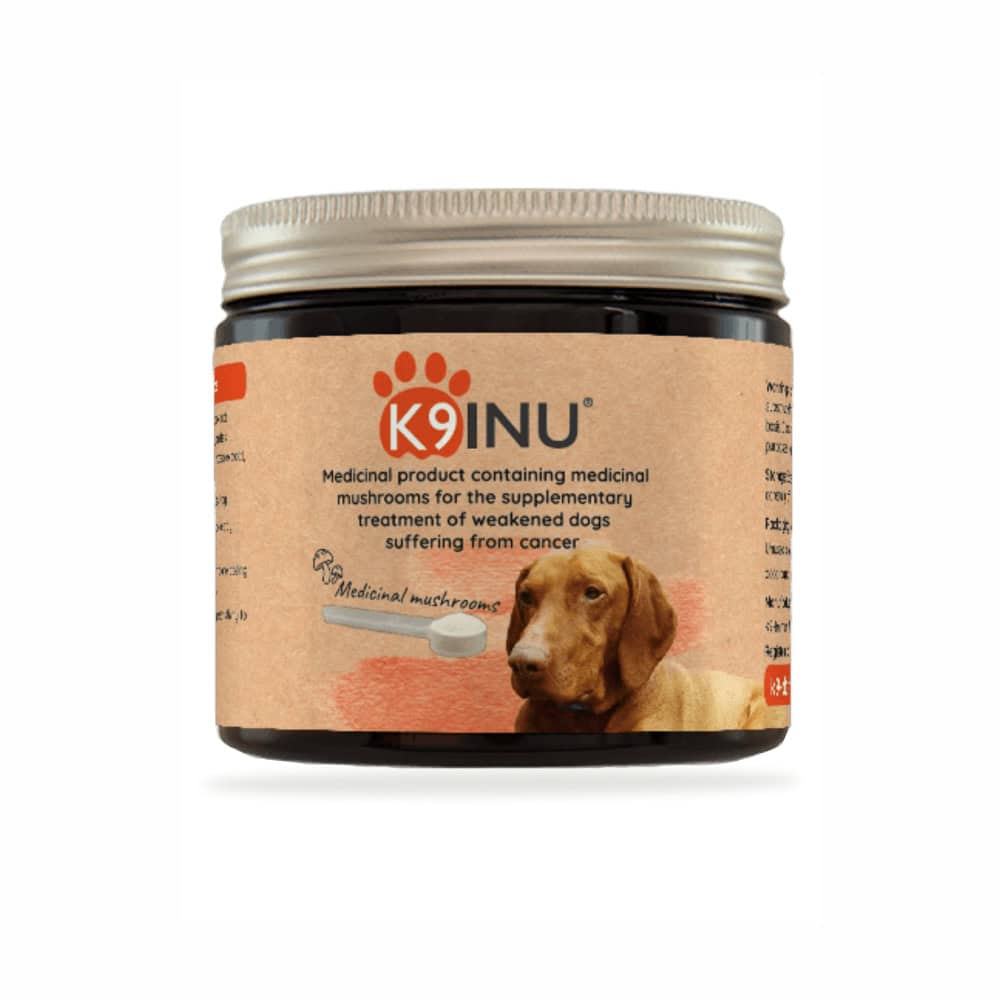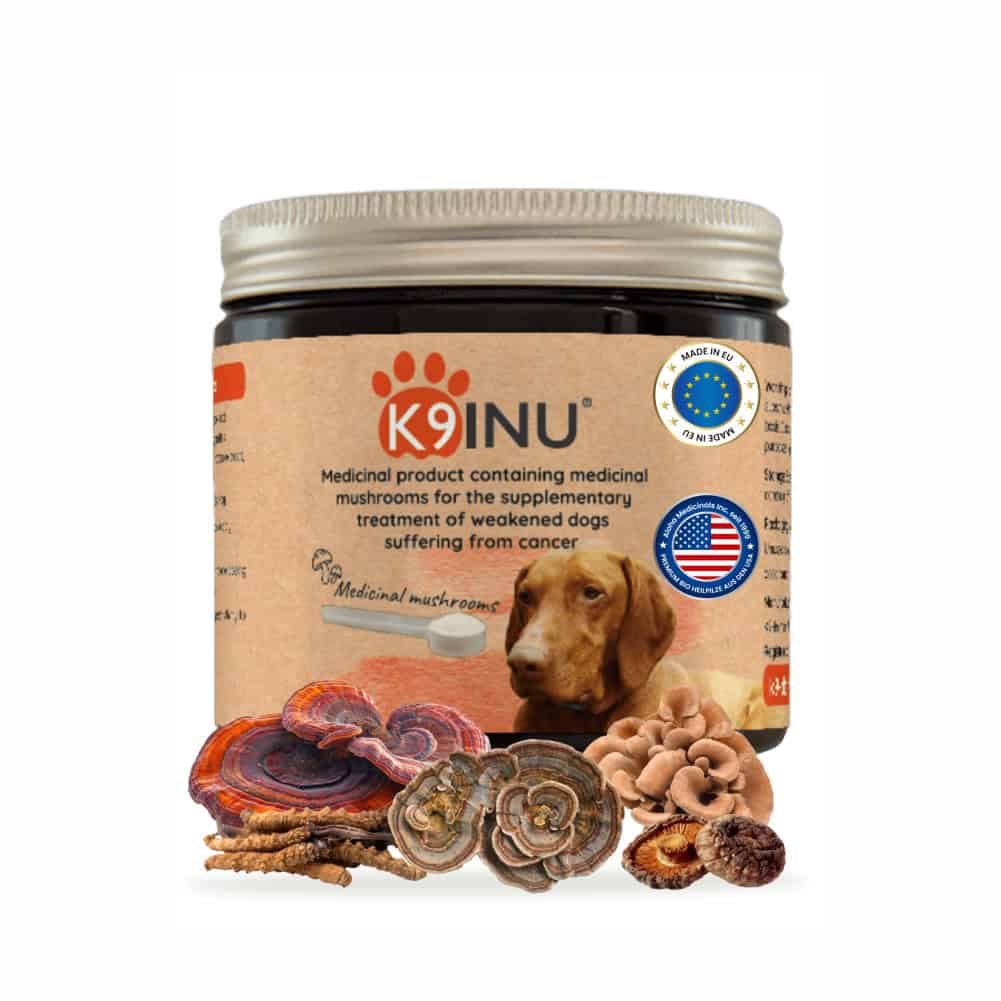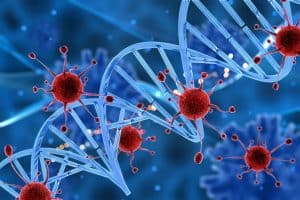Symptoms of dog cancer – 10 early signs
Unfortunately, there are more and more cancers in our dogs. The symptoms of dog cancer are very similar to human tumours, except that they can’t tell you what they feel, where it hurts, what has changed.

The symptoms of canine tumors are very diverse, and there are as many types of symptoms as there are tumor types. To make matters worse, our pets can’t communicate their feelings and the high pain threshold of dogs is not “helpful”.
That’s why it is very important to have regular medical check-ups and to keep an eye on our dog. If there is any change in his habits; sudden weight loss, weight gain, etc., check it out, don’t neglect it!
The symptoms of a tumour in a dog may include those that make you think it’s a tumour (visible lumps on the body), but there are also some that are not so obvious.
Symptoms of dog cancer
Here are 10 symptoms that may indicate cancer, as well as being a sign of other diseases.
Balance disorders
If your dog starts to walk back and forth, limbs become weak, limp or collapse, get him to a doctor immediately! It is also possible that the dog may lose consciousness for a short period of time and wake up as if nothing had happened. If he cannot stand on one of his legs, or if he starts to limp and there is no known injury or foreign body, this could also indicate a tumour!
Urination, diarrhoea, defecation problems
If your pet is defecating more often than usual, or has problems passing urine or faeces from one day to the next, contact your doctor. Even if he still has difficulty defecating despite all his efforts. If you see blood in his urine or faeces, tell your doctor immediately!
Skin changes
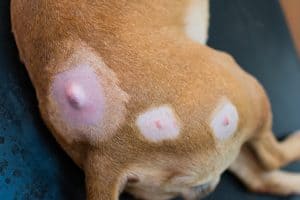
Skin lumps in dogs can be cysts or tumours – one of the possible symptoms of dog cancer.
With age, warts can appear on different parts of the body, on the eyelids, on the cheeks. The fat glands may also become enlarged.
This does not necessarily mean that your dog have cancer, but you should check with the doctor about the appropriate treatment.
However, various bumps, hard or soft growths on the skin, under the skin, which may even be movable, can be cysts or benign growths, but can also be tumours. However, painful or itchy bumps, sores that are difficult or impossible to heal despite topical treatment or antibiotics, may indicate a more serious condition. Make sure you see a specialist!
Nosebleeding
Nosebleeds can be caused by a sting, a toclasis, or a nasal tumour. Make sure you take him to the doctor! If it’s a sting, it’s because the sting can go down into his lungs, if it’s a sting, it’s for pain relief, if it’s a tumour, it’s for a proper check-up. If you don’t see any blood, just scratching his nose with his paws or sneezing a lot, you should still see a doctor!
Defluxion
Discharge from the nose or eyes with an unusual smell or consistency may also be a cause for concern. In addition to a fungal infection, it can also mean a tumour in the face or eyes. A discharge from the genitals or rectum may also be a sign of cancer.
Symptoms of dog cancer
Weight gain
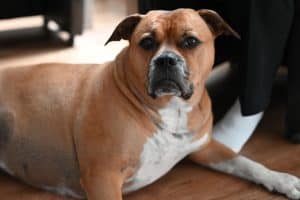
One possible sign of a tumor is sudden weight gain.
If your dog starts to put on weight on a regular diet and exercise, it could be a thyroid or hormonal problem, or it could be caused by a tumour. Be sure to check with your vet!
Weight loss
Tumour cells multiply and grow very quickly, which requires a lot of energy. This energy is taken from the dog’s body. If the dog is losing weight even with normal food and exercise, the cause could be cancer!
If your dog, who used to be a big eater, suddenly starts refusing even the best treats, this could be caused by a tumour along the intestines.
Seizures
The unexpected onset of sudden seizures, twitching, or foaming at the mouth can be a sign of stroke or epilepsy, or it can be a sign of cancer.
Changes in the mouth, ozostomy
Foul breath, changes in the colour of the gums and sudden bleeding teeth can also be caused by oral cancer. It is a good idea to examine your dog’s mouth and teeth regularly! On the one hand, you can spot other problems such as gum atrophy or tooth decay or plaque, and on the other hand, you can detect signs of more serious disease, such as cancer, earlier.
Sudden mood changes, moodiness
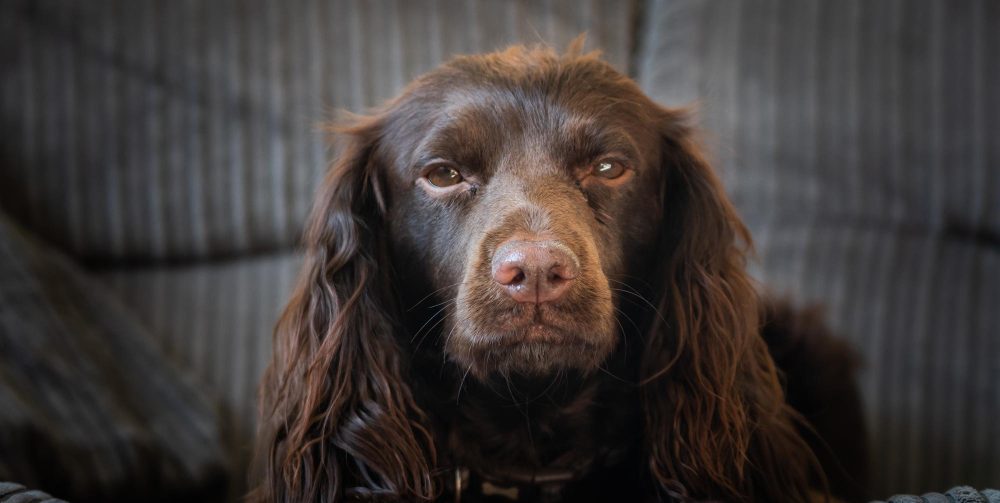
Sudden mood changes can be one of the early symptoms of dog cancer.
The tumour cells eat up the nutrients the dog ingests. They use a lot of energy from the dog’s body to grow. As a result, your pet may become more tired and listless. If a previously ball mad dog suddenly becomes uninterested in playing, refuses to go out for a walk, and withdraws, we should be suspicious. If our previously happy, friendly dog suddenly becomes irritable and avoids our company or that of other dogs, we should have him checked out!
Early detection is very important for the successful treatment of tumours! As soon as you suspect a tumour, take your pet to a vet immediately, who will be able to determine whether your suspicions are correct by carrying out the appropriate tests.
Symptoms of dog cancer
Degenerative, cancerous cells can grow extremely rapidly. They drain the energy needed for this growth from the body, which weakens the body and overwhelms the immune system. A weakened, overburdened immune system is unable to perform its function perfectly, thus allowing more and more room for disease and tumour cell proliferation.
Medical science offers a fairly wide range of solutions for the treatment of cancer (surgery, chemotherapy, radiotherapy). These treatments are very important to “unburden” the body, but they do not eliminate the root cause, the reason why the immune system allows cancer cells to proliferate.
Immunomodulatory therapy consists of two parts
- reduce the size of the tumour using traditional methods, thereby reducing the burden on the body (surgery, chemotherapy,
- activate the immune system, make it recognise the tumour cell and trigger an appropriate immune response.
Similar to K9 INU®, and K9 InuExtra® products are based on 6 different natural immune-boosting medicinal mushrooms. Their main active ingredients are heteropolysaccharides, which have been proven in several “forums” to have immunostimulatory, antitumour and anti-metastatic effects.
Symptoms of dog cancer
A proper diet is essential!
Cancer is one of the most common causes of death in dogs. Many experts believe that the main reason for this is a poor diet. We usually feed our pets a diet based on cereals, even though dogs do not naturally graze on wheat fields. Dogs do not have the enzymes to digest and utilise grain. They are basically carnivores!
When a carnivorous animal eats a grain-based diet, its body does not get (or cannot process and utilise) the nutrients it needs, there is a high risk of immune disorders, including cancer.
If inappropriate diet is indeed one of the main causes of cancer, then it is clear that a good diet is essential for dogs with cancer. In fact, proper diet is one of the most important factors in successful cancer treatment! To really give our dogs everything they need to fight cancer, we need to provide them with the right nutrients. Just because a dog food is expensive, or has a trendy name or is recommended by many, doesn’t mean it’s the best for a dog with cancer. For more information, read our article FEEDING A DOG WITH CANCER.
More about dog cancers
Source: pethealthnetwork.com, rd.com,
